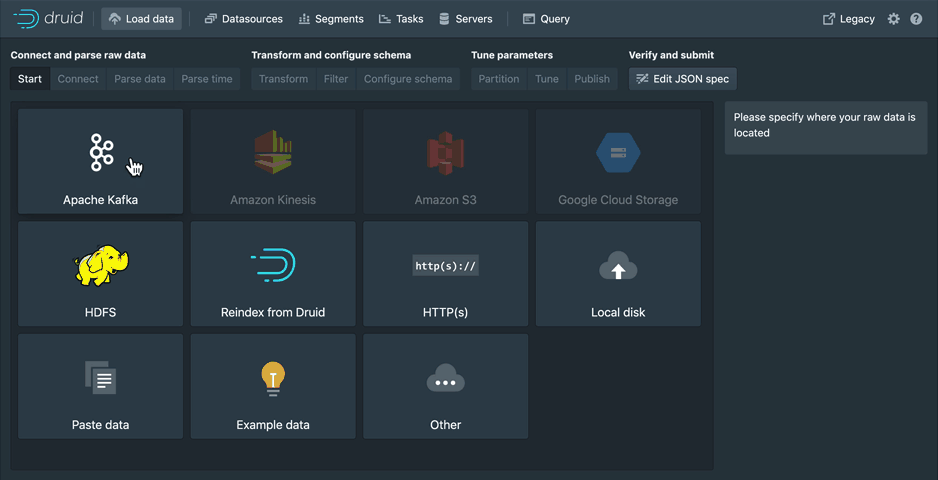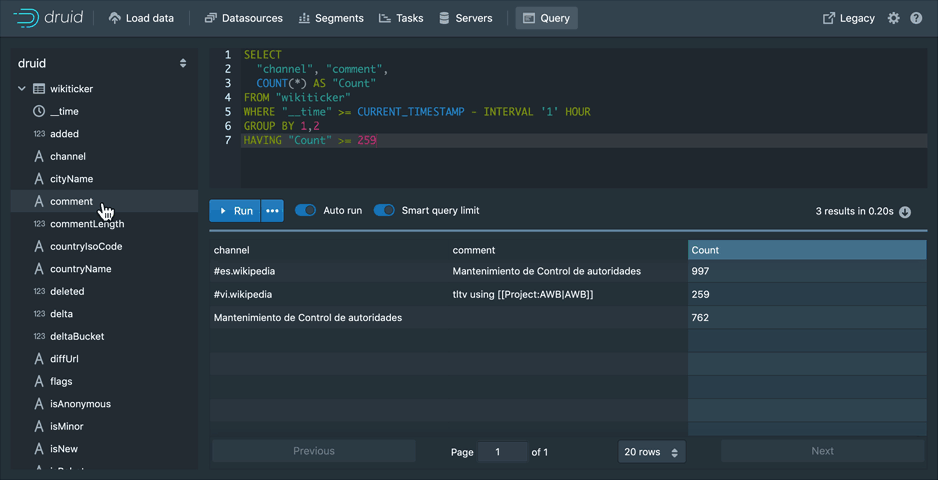* Use a simple class to sanitize sanitizable errors and log them The purpose of this is to sanitize JDBC errors, but can sanitize other errors if they implement SanitizableError Interface add a class to log errors and sanitize them added a simple test that tests out that the error gets sanitized add @NonNull annotation to serverconfig's ErrorResponseTransfromStrategy * return less information as part of too many connections, and instead only log specific details This is so an end user gets relevant information but not too much info since they might now how many brokers they have * return only runtime exceptions added new error types that need to be sanitized also sanitize deprecated and unsupported exceptions. * dont reqrewite exceptions unless necessary for checked exceptions add docs avoid blanket turning all exceptions into runtime exceptions * address comments, to fix up docs. add more javadocs add support UOE sanitization * use try catch instead and sanitize at public methods * checkstyle fixes * throw noSuchStatement and NoSuchConnection as Avatica is affected by those * address comments. move log error back to druid meta clean up bad formatting and commented code. add missed catch for NoSuchStatementException clean up comments for error handler and add comment explainging not wanting to santize avatica exceptions * alter test to reflect new error message
Website | Documentation | Developer Mailing List | User Mailing List | Slack | Twitter | Download
Apache Druid
Druid is a high performance real-time analytics database. Druid's main value add is to reduce time to insight and action.
Druid is designed for workflows where fast queries and ingest really matter. Druid excels at powering UIs, running operational (ad-hoc) queries, or handling high concurrency. Consider Druid as an open source alternative to data warehouses for a variety of use cases. The design documentation explains the key concepts.
Getting started
You can get started with Druid with our local or Docker quickstart.
Druid provides a rich set of APIs (via HTTP and JDBC) for loading, managing, and querying your data. You can also interact with Druid via the built-in console (shown below).
Load data
Load streaming and batch data using a point-and-click wizard to guide you through ingestion setup. Monitor one off tasks and ingestion supervisors.
Manage the cluster
Manage your cluster with ease. Get a view of your datasources, segments, ingestion tasks, and services from one convenient location. All powered by SQL systems tables, allowing you to see the underlying query for each view.
Issue queries
Use the built-in query workbench to prototype DruidSQL and native queries or connect one of the many tools that help you make the most out of Druid.
Documentation
You can find the documentation for the latest Druid release on the project website.
If you would like to contribute documentation, please do so under
/docs in this repository and submit a pull request.
Community
Community support is available on the druid-user mailing list, which is hosted at Google Groups.
Development discussions occur on dev@druid.apache.org, which you can subscribe to by emailing dev-subscribe@druid.apache.org.
Chat with Druid committers and users in real-time on the #druid channel in the Apache Slack team. Please use this invitation link to join the ASF Slack, and once joined, go into the #druid channel.
Building from source
Please note that JDK 8 is required to build Druid.
For instructions on building Druid from source, see docs/development/build.md
Contributing
Please follow the community guidelines for contributing.
For instructions on setting up IntelliJ dev/intellij-setup.md







